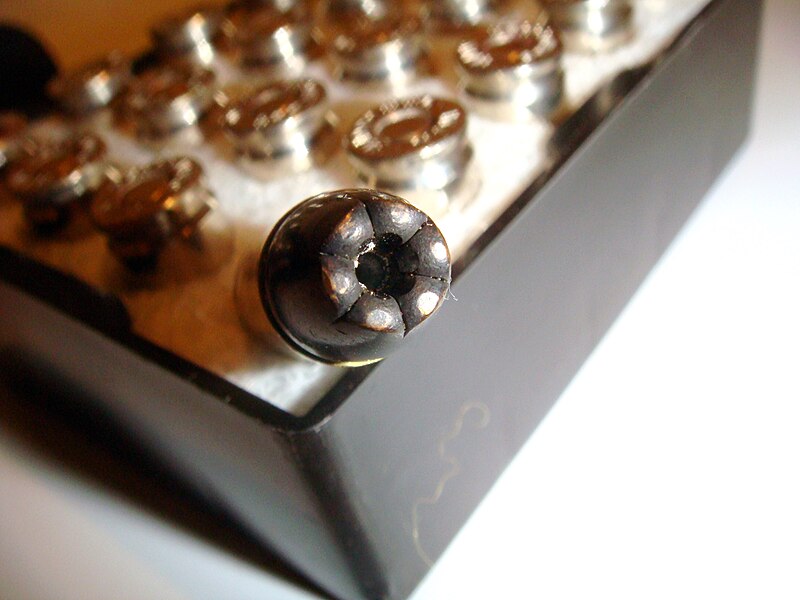A Straightforward Answer
When it comes to ammunition, few names spark as much curiosity and controversy as the Black Talon bullet. With a history shrouded in media hype and misinformation, many people wonder: Are Black Talon bullets illegal? In this article, we’ll cut through the noise to give you a clear answer, covering why they were discontinued, where they might be restricted, and what they were designed for in the first place.
What Are Black Talon Bullets?
The Black Talon bullet was developed by Winchester in 1991. Unlike standard hollow-point bullets, the Black Talon bullet design was intended to expand upon impact, creating six “talon-like” claws that were meant to cause more significant tissue damage. This unique design earned it a notorious reputation for being excessively deadly—though, in reality, it wasn’t much different from other high-performance hollow-point rounds.
The controversy surrounding the bullet grew after it was linked to high-profile crimes in the early 1990s. Some critics and media outlets sensationalized the idea that Black Talon bullets were “armor-piercing” or unusually dangerous, which fueled the debate over their legality.

Are Black Talon Bullets Illegal?
The simple answer: No. Black Talon bullets are not illegal under federal law in the United States. However, after intense media scrutiny and public backlash, Winchester voluntarily discontinued them in 1993. The decision wasn’t driven by any legislative action but by the negative publicity the brand received.
That said, there are state and local laws that regulate hollow-point ammunition, which could apply to Black Talon bullets. While these regulations don’t specifically target Black Talons, they may restrict or ban hollow-point ammo in certain jurisdictions.
Why Black Talon Bullets Are Not Banned (But Discontinued)
So why aren’t Black Talon bullets banned? Let’s clear up a few misconceptions.
- Not Armor-Piercing: Despite the myth, Black Talon bullets were never designed to pierce armor. Like other hollow-point bullets, they were meant to expand upon impact for better stopping power in self-defense situations, making them less likely to over-penetrate.
- Discontinued Due to Public Perception: Media outlets falsely labeled them as excessively lethal. The name “Black Talon” and its ominous appearance added fuel to the fire, but the truth is, the bullet performed like many other hollow-point rounds on the market.
Today, Winchester markets a similar bullet called the Ranger SXT, which is almost identical in performance but lacks the controversial branding. This ammo is widely used by law enforcement.
Where Are Black Talon Bullets Restricted?
While Black Talon bullets themselves are not outright illegal, you might run into trouble depending on where you live. Certain states and cities have strict regulations on hollow-point ammunition. For example:
- New Jersey: Prohibits hollow-point bullets except for certain conditions, like use in one’s home or shooting range.
- San Francisco: Has local restrictions on the sale and possession of hollow-point ammunition.
These laws are not exclusive to Black Talon bullets but cover any form of expanding ammunition. If you live in an area with hollow-point restrictions, owning or using Black Talon bullets could get you into legal trouble.
Legitimate Uses of Black Talon Bullets
Despite their sinister reputation, Black Talon bullets were designed for legitimate purposes—primarily self-defense and law enforcement use. Their expanding design was intended to increase stopping power while reducing the risk of over-penetration, making them effective for close-range encounters.
Today, you can find modern equivalents like the Ranger SXT, which offer the same level of performance without the “evil” branding. In the world of ammunition, function matters more than the name on the box.
Public Perception and Media Influence
Much of the hysteria surrounding Black Talon bullets can be traced back to media misrepresentation. Following several crimes involving these bullets, journalists sensationalized their lethality, painting them as weapons designed for carnage. This perception stuck with the public, despite being far from the truth.
Winchester’s decision to discontinue the Black Talon line in 1993 was more a reaction to bad press than any legal mandate. Even though the company renamed and slightly redesigned the bullet as the Ranger SXT, it was clear that the problem wasn’t the ammo—it was how it was marketed.
In conclusion, Black Talon bullets are not illegal, but they were voluntarily pulled from the market due to public pressure and media sensationalism. Today, you can still find similar hollow-point bullets, like the Winchester Ranger SXT, which perform just as well without the baggage of a controversial name.
The lesson here? Don’t buy into the hype. Understand your local laws regarding hollow-point ammunition, but know that Black Talons themselves are not forbidden by federal law.



